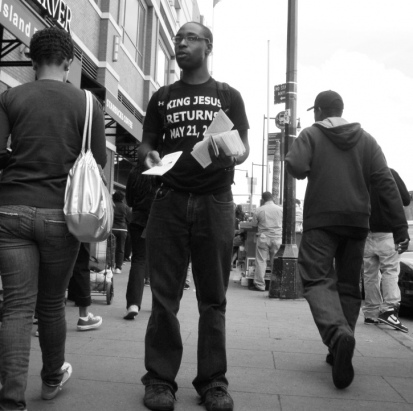The Pharisaical Mindset in Modern Christianity: Remembering the Mission of Jesus
By Brandon Anchant, Intern In today’s Christian community, there exists a pervasive atmosphere of a pharisaical mindset. This mindset is characterized by...
Those of us who teach Bible and theology in Christian colleges and seminaries learn quickly to live with chastened hopes of making a significant impact on the church in America today. I am well aware that any influence I might ever have on believers outside my local church is indirect. That is, in shaping future pastors, church planters, missionaries, teachers, and counselors, I do have the joy of influencing believers all over the world through the graduates of our seminary. But my teaching and writing, especially the academic side, while necessary, is not what will transform churches.
 Yale University theologian, Miroslav Volf notes that in his context of mainline liberal churches, theologians are completely irrelevant to the average churchgoer. He observes that while scholars address other scholars and students, the church is listening to other voices:
Yale University theologian, Miroslav Volf notes that in his context of mainline liberal churches, theologians are completely irrelevant to the average churchgoer. He observes that while scholars address other scholars and students, the church is listening to other voices:
Theologians are on the sidelines. Like the streetcorner preachers of yesterday, they find themselves talking to a crowd too hurried to honor them with more than a fleeting glance.
“Theology, Meaning and Power,” in The Nature of Confession, ed. Timothy Phillips and Dennis Okholm (IVP, 1996), 45.
Now, I don’t think the situation is as dire in conservative, Bible-believing churches, but the principle still applies to some extent. It’s not the college and seminary professors that will change the church. Pastors who faithfully preach and teach the Word to their congregations in the power of the Holy Spirit are the ones who will be the most instrumental in significant change. They are the ones who must keep their fingers on the pulse of the people in the pew and counter the various influences of error today. While professors can fulfill their role in training ministers, no one should live with the illusion that they are more important to the average Christian than they really are.
By Brandon Anchant, Intern In today’s Christian community, there exists a pervasive atmosphere of a pharisaical mindset. This mindset is characterized by...
5 Themes To Spark Faith Conversations INFOGRAPHIC How can we talk about Jesus in a way that connects with the people around us? Inspired by Dan Strange’s...
POCKET GUIDE TO EVANGELISTIC & APOLOGETIC QUESTIONS DOWNLOADABLE RESOURCE The Pocket Guide to Evangelistic & Apologetic Questions by Jeff Mindler...